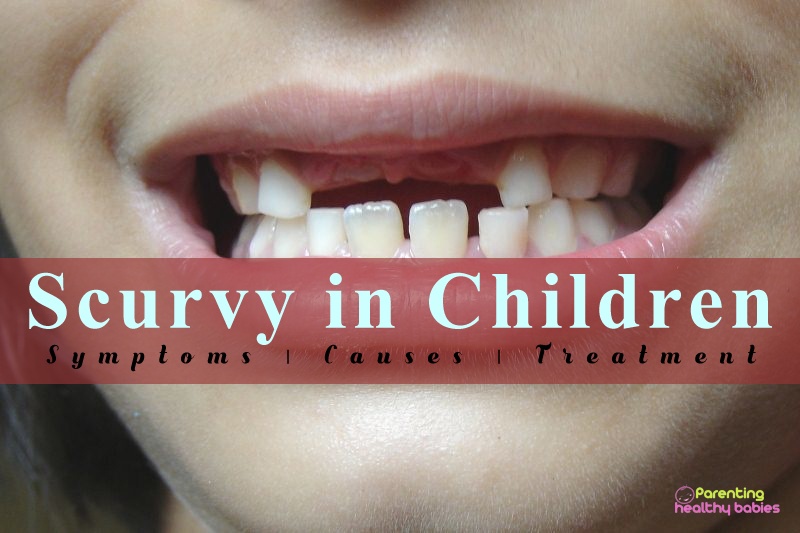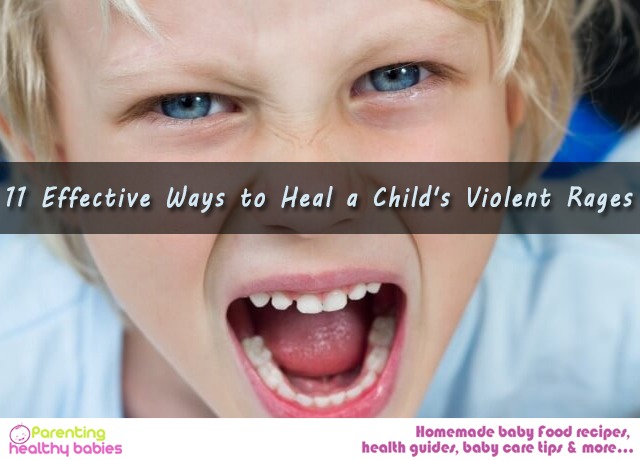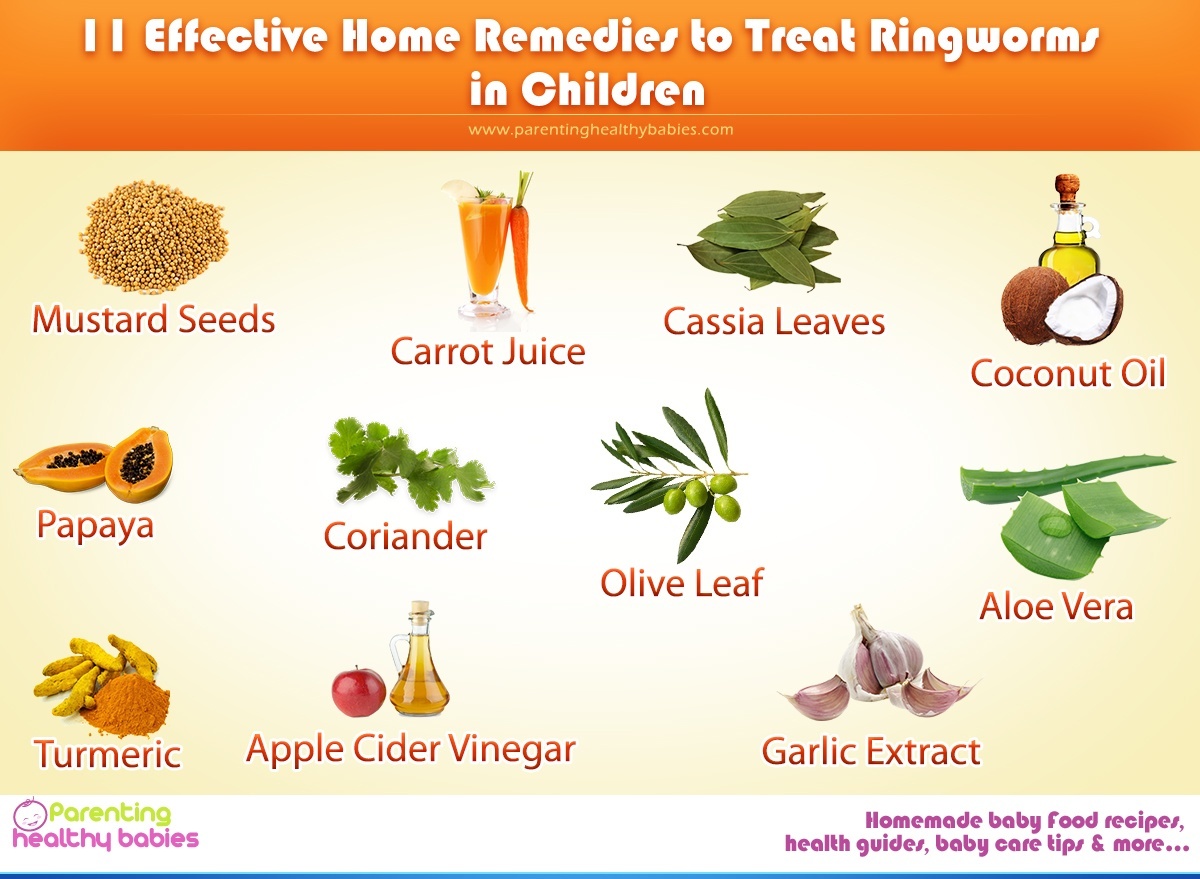Scurvy is a disease that most of us don’t consider to be a threat anymore. It is caused by a severe and chronic deficiency of Vitamin C. The occurrence of scurvy is quite uncommon in today’s society. However, it can still happen to your child if he or she has inadequate Vitamin C in his or her diet. If you’re wondering whether your baby is suffering from scurvy, listed below are the symptoms to look for. We have also listed the causes and treatment options for the disease.
Symptoms, Causes and Treatment of Scurvy in Children
Symptoms of scurvy in children
The symptoms of scurvy can be divided into early symptoms and late symptoms. The early symptoms are usually mild and don’t raise concern. These can also be mistaken for common illnesses such as the flu. For this reason, you may not take your child to the doctor.
Early symptoms of scurvy in your child
Here are some of the early symptoms of scurvy that you can look for in your little one. However, these could also be the result of some other self-limiting ailment.
- Loss of appetite
- Diarrhea
- Fever
- Fatigue
- Painful muscles and joints
- Small pinpoint bleeding occurring around your baby’s hair follicles that are visible on the skin
- General feeling of malaise
Late symptoms of scurvy in children
In the case of a severe case of scurvy, your child is more likely to show more specific signs and symptoms. These may include:
- Refusing to walk
- Loose teeth
- Easy and severe bruising of your child’s skin along with bleeding into it
- Gums that are prone to bleeding and appear swollen, purplish in color and spongy
- Bulging of the eyes
- Extremely dry hair that tends to curl and break off close to your baby’s skin
- Dry, scaly and brownish skin
- Slow healing of your baby’s wounds
- Opening of scars that have healed before
- Swelling of the bones of your baby’s arms and legs due to internal bleeding into the joints
- Stopping of your baby’s bone growth before time
- Irritability and anxiety in the case of infants
- Assuming frog leg posture to try and ease the pain
Read more: Natual Remedies to Treat Indigestion in Kids
Why is scurvy harmful to your baby?
If your baby is suffering from scurvy, the growth of the long bones in their legs and arms are likely to be stunted. This happens because when your baby has a severe lack of ascorbic acid (Vitamin C), it prompts the plates in their bones to harden prematurely.
Apart from the stunting of growth in their bones, your baby may also suffer from other complications. These include anemia and heart conditions leading to heart attacks. If left untreated, it can also lead to the death of your child.
What are the causes of scurvy in children?
There are many factors that can lead to scurvy in your baby. Here are some of the causes and risk factors associated with this disease.
Insufficient Vitamin C Intake
The main cause of scurvy in children is an inadequate consumption of vitamin C by them. Not having enough of this essential vitamin in their diet causes the body to use up what is currently available.
Your baby’s body cannot synthesize vitamin C. That is why it is needed to be provided to him or her from external sources. Foods including vegetables and fruits rich in vitamin C along with other fortified foods should be included in your baby’s diet to prevent deficiency.
Deficiency in the mother
If you have low levels of vitamin C in your body during pregnancy or after childbirth, it could cause your baby to have scurvy. Your newborn baby is dependent for his or her nutrition on your breastmilk.
Your breastmilk is richer in vitamin C content than cow’s milk. Inadequate breastfeeding or not breastfeeding for long enough can also lead to a deficiency in your baby. The human body can’t store this vitamin. So, if you’ve not been taking enough during the pregnancy or during breastfeeding, chances are your baby can be affected.
Underlying Illness
Your baby may be suffering from some illness that is causing his or her body to be unable to get enough vitamin C. If your baby has some mental health issues, then too he or she is at more risk of getting scurvy. Anemia and other deficiency diseases can also cause scurvy.
Severely restricted diet for controlling your baby’s allergies can also be a cause of scurvy. This may lead you to do away with most of the fresh fruits and vegetables that are rich in vitamin C.
Read more: Common Allergies among Children
Fussy eating or inability to ingest food orally
If your baby is a fussy eater and doesn’t want to eat fruits and vegetables, they are at greater risk of getting scurvy. Also, if your baby has problems in ingesting food orally this can be a cause of scurvy.
Improper weaning
In infants and babies, unsuccessful or late weaning can also cause scurvy. Ask your doctor when the correct time is to wean your baby to prevent this from happening.
Treatment of scurvy in children
Thankfully, scurvy can be treated relatively easily. Since it is mainly caused by a deficiency of vitamin C an increase in its intake is usually sufficient. Your doctor can recommend supplements for your child to speed up the process. Generally, a minimum of 250 mg vitamin C supplement is recommended to treat scurvy in children. However, the dosage might vary depending on the severity of the disease.
Treating other deficiencies
Your child may also be suffering from other nutritional deficiencies such as anemia. This can be treated with separate supplements and/ or dietary changes. Depending on the nature of the deficiency, your doctor or dietician will recommend supplements.
Orange juice
This is a common dietary method of treating scurvy in infants. Usually, your baby’s appetite will return to normal within 24 to 48 hours and they can make a full recovery in about two weeks. This is very effective in treating the fever, irritability and pain that is seen in infantile scurvy.
Dietary changes
Your baby’s body cannot synthesize vitamin C. That is why you need to include plenty of fresh fruits and vegetables rich in this vitamin in his or her diet. Include plenty of citrus fruits like oranges, lemon and grapefruits. Berries and cantaloupe are also good sources of vitamin C.
Vegetables such as spinach, broccoli, tomatoes, potatoes, green peppers, cabbage and cauliflowers should also be included in the diet. If your child is a fussy eater, you can try to incorporate these into smoothies and other dishes. However, remember that ascorbic acid can be destroyed by heat. That is why you should encourage your child to eat fresh fruits and vegetables.
Home remedies for treating scurvy
There are also several home remedies that you can try to treat scurvy at home. Given below are some of the most effective home remedies that you can use. However, be mindful of any allergies your child has to any of the ingredients. You don’t want to aggravate the condition.
Green Chilies
This easily available ingredient is one of the richest source of vitamin C. You can try to include these in your child’s diet. However, be careful of the amount you put as some of these can be very hot and spicy. Alternately you can also use red chilies. If your child is too young, it is best not to use this home remedy.
Kiwi Fruits (Chinese Gooseberry)
This is yet another effective home remedy. This tasty fruit can be given to your child as a desert or it can be incorporated into salads. It is one of the richest sources of vitamin C. Almost 96 percent by weight of this fruit is vitamin C.
Raw Mango Powder
Raw mango powder has been in use in India other tropical countries in their dishes for generations. This is a great source of vitamin C. The powder is made from the sun-dried skin of the mango fruits. You can give your child one teaspoon of this powder before every meal to treat scurvy at home.
Raw Brussel Sprouts
100 grams of this vegetable provides about 75 mg of vitamin C. Including this in your baby’s daily diet will make sure that he or she gets enough to fight the deficiency.
Include plenty of broccoli in your baby’s diet because this is a highly effective home remedy for treating scurvy. One 100 gram serving of broccoli can provide up to 89 mgs of vitamin C to your child’s body.
Yellow bell peppers have been seen to be the richest source of vitamin C among all the types. It is followed by red and green peppers. Include yellow bell peppers in salads and other dishes to ensure that your baby gets enough.
Jaundice Berry
You can use the leaves of this herb to treat scurvy at home. The leaves have excellent anti-scorbutic properties making it a great home remedy to try. Take about 35 grams of dried jaundice berry leaves. Boil these in one liter of water till it reduces to half the original volume. Give this infusion to your child daily to treat scurvy.
Herbal remedies
Herbs such as thyme and parsley are also effective in treating scurvy at home. Among all the herbs, thyme contains the maximum amounts of vitamin c. It has also been used to make herbal medicines for treating scurvy. 100 grams of Parsley contains about 133 mg of vitamin C. This makes it quite an effective herbal remedy for treating scurvy. Both herbs can be used for seasoning or eaten raw in salads and other dishes.
Precautions
Increasing the intake of vitamin C by your baby is the most effective way of treating scurvy. However, there are certain precautions that you should follow in giving vitamin C to your child. This is because vitamin C in large quantities can be harmful to your baby. Never give him or her more than the dose that is recommended by your doctor.
If your doctor has prescribed a vitamin C supplement, don’t increase the dosage without consulting them first. Only if they approve you can change the dosage. Overdosing of vitamin C can be quite dangerous for your baby. Some of the risks include:
- Diarrhea, severe abdominal cramps and nausea
- Kidney problems including kidney stones
- Decreased effect of certain prescription medicines
- Inflammation of the stomach lining
The maximum amounts that you can provide to your child safely as recommended by the Food and Nutrition Board of the Institute of Medicine are given below:
- Not more than 400 mg per day for children between one to three years
- Not more than 650 mg per day for children between four to eight years
For infants and neonates, please ask your doctor for the recommended daily intake amounts. Also, verify the amount you can safely give to your child from your doctor before you start using any supplements.
Conclusion
Scurvy, once a disease affecting sailors is rare in most modern societies. However, it can happen to your baby if they are severely deficient in vitamin C. This can happen due to a number of reasons including inadequate vitamin C in the mother’s body. Scurvy can be fatal in extreme cases. This disease can be usually easily treated with vitamin C supplements. Apart from that, dietary changes can also benefit in treating your child’s scurvy. Include plenty of fresh fruits and vegetables especially citrus fruits in your baby’s diet to prevent scurvy.
Consult a doctor if you notice any of the symptoms of scurvy in your baby. Timely diagnosis and treatment can effectively cure it. It is recommended that you don’t try any supplements or home remedies before consulting your doctor. You should also check for allergies and other underlying deficiency diseases that can be causing scurvy in your child.
Remember, an overdose of vitamin C can also be harmful to your child. It can lead to diarrhea, abdominal pain and nausea. It can also cause kidney stones and gastritis. Always stick to the dosage prescribed by your doctor.
Hope this article was of help for all our parents!! Please share your comments/queries/tips with us and help us create a world full of Happy and Healthy Babies!!













